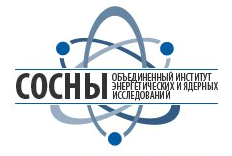2022-09-02 Laboratory of Analytical Research, Institute for Nuclear Problems, Belarusian State University The use of ethyl alcohol as an internal standard makes it possible to greatly simplify the procedure the quantitative determination of volatile compounds and methanol in alcoholic products. Before implementing a new method in a research laboratory, the method must be validated. Validation of the new method may be done based on experimental data obtained in the laboratory during testing of alcoholic products. Quantitative determination of volatile compounds in alcoholic products is currently carried out by gas chromatography with flame ionization detection (FID) according to regulatory document EC2870/2000 (OIV-MA-BS-14). As a rule, pentan-3-ol, pentan-1-ol and 4-methylpentan-1-ol are used as an internal standard, which are absent in alcoholic products, obtained from enzymatic fermentation. A modification of the traditional internal standard method was proposed, namely to use ethanol, which always present in alcoholic beverages, as a reference compound DOI:10.1051/bioconf/20191502030, DOI: 10.1016/j.jfca.2022.104772, DOI:10.1007/s12161-021-02047-8. The use of the proposed method ensures high reliability of the data obtained, significantly reduces time, labor, material and financial costs. Analysis of volatile compounds in spirit drinks has never been so easy. Draft modification of the document COMMISSION REGULATION (EC) No 2870/2000, taking into account the application of the proposed method is presented. The places in the text of the EC2870/2000 document to be deleted are highlighted in yellow. Embedded parts of the test are highlighted in green. Highlighted in blue are data that will be established based on the results of the performed interlaboratory tests.
Draft modification of the following documents are presented too:
Application note for method validation based on experimental data obtained in the laboratory during testing of alcoholic products is given here: DOI:10.1051/bioconf/20191502030 and DOI: 10.1016/j.jfca.2022.104772. Questions, comments and proposals are welcome here. |
| Research Institute for Nuclear Problems of Belarusian State University |








